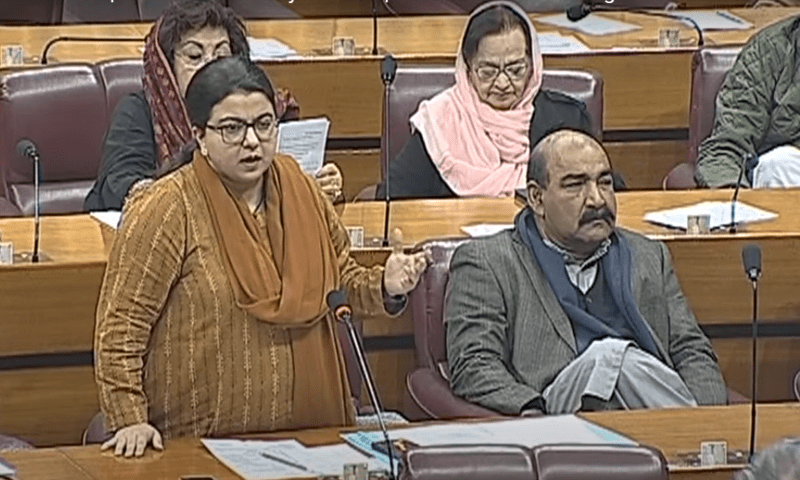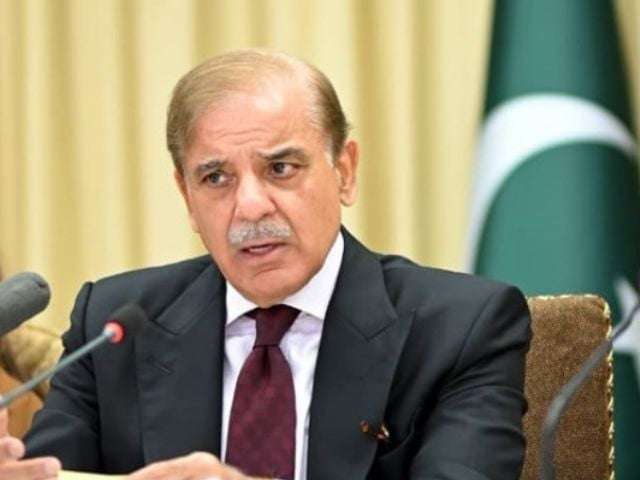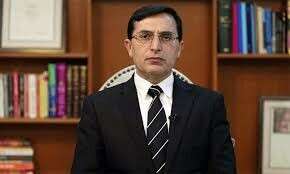In a recent statement, Shaza Fatima Khawaja, the Minister of State for IT, addressed the ongoing challenges faced by internet users in Pakistan, particularly regarding slow internet speeds and connectivity issues. This comes after months of complaints from citizens who have reported sluggish internet, difficulties in accessing social media platforms, and poor service quality, including issues with WhatsApp, which many users depend on for communication.
Challenges Faced by Users: An Overview
Over the past few months, internet users across Pakistan have faced significant disruptions, with many reporting slow speeds and issues downloading media on platforms like WhatsApp. In addition to connectivity issues, there have also been reports of intermittent access to various services, contributing to public frustration.
As digital analysts have pointed out, these disruptions coincide with the government’s implementation of a “firewall” that regulates some online platforms. This firewall is believed to have the power to block certain types of content, including images and videos of political rallies shared on messaging platforms such as WhatsApp. In response to these growing concerns, the government has asserted that it is updating its “web management system” in an effort to enhance cyber security.
The Government’s Stance on Internet Issues
During a session of the National Assembly (NA), Shaza Fatima Khawaja responded to questions regarding internet issues by acknowledging the challenges that users have faced in recent months. She emphasized that while there have been difficulties, the government is working on addressing them, especially in terms of improving Pakistan’s internet infrastructure.
“We do not deny that there have been challenges in user experience in the last couple of months,” Khawaja said. “But there are certain realities that we have to consider. There is a need to correct perceptions,” she added, attempting to balance user concerns with the need for national security measures.
Improvement in Internet Services: The Government’s Efforts
Khawaja, in her remarks, pointed out that the government has made significant strides in improving the country’s internet services. According to her, the Pakistan Telecommunication Authority (PTA) annual report for 2023-24 showed that average internet speed had improved by 28%. She also noted a 24% increase in mobile data usage and a 25% year-on-year growth in IT exports for November 2024.
However, Khawaja also highlighted several factors contributing to the internet issues. These included limited spectrum availability, congestion on networks, and the country’s low “fiberization” rate, which refers to the usage of optical fiber cables. According to the Minister, less than 2% of the country’s network infrastructure has been fiberized, which is a key limitation in terms of improving internet speed and quality.
Khawaja also revealed that four additional undersea cables would be installed within the next two years to improve connectivity and speed, which would help address some of the current issues. These cables are expected to enhance Pakistan’s internet infrastructure, making it more robust and capable of handling the growing demand for digital services.
The Firewall Controversy: PPP’s Criticism
The ongoing controversy surrounding the government’s internet measures has been further fueled by criticism from Pakistan People’s Party (PPP) lawmakers. PPP Members of the National Assembly (MNAs), including Abdul Qadir Patel and Shazia Marri, have expressed strong reservations about the measures that have led to widespread internet disruptions. The ban on social media platform X (formerly Twitter) and the implementation of a firewall have been particular points of contention.
Abdul Qadir Patel, one of the PPP lawmakers, sharply criticized the government’s actions, stating, “We thought she would know better why the internet has been completely ruined in this country. Take X, Y, or Z — voice notes and pictures do not load here. What firewall are you implementing that could not be activated until now?” Patel also lamented the significant losses being suffered by businesses and the disruption to students’ academics due to these ongoing issues.
He also demanded clear answers from the government regarding when the internet service would return to full speed. “When will the internet start functioning at full speed? Please answer this.”
In response to these criticisms, Sajid Mehdi, Parliamentary Secretary for Cabinet Secretariat, defended the government’s actions, citing security concerns as the primary reason for the current state of internet services. He reiterated that the ban on X (Twitter) would remain in place until the Ministry of Interior deemed it safe to lift it.
Shazia Marri’s Remarks on Government Accountability
Shazia Marri, another PPP MNA, expressed frustration with the ongoing situation, noting that government officials were “passing the ball” to one another instead of taking collective responsibility for the issues. She criticized the lack of accountability regarding the internet disruptions and questioned the government’s commitment to improving digital infrastructure in the country.
Marri also expressed concerns about the government’s approach to freedom of speech, stating that while there was a need for responsible use of digital platforms, the current measures were causing collateral damage. “I condemn those who have spread destruction by using the internet for terrorism or harassment. But those who are not doing so, you are pushing them,” she said, referring to the negative impact the current policies have on regular users and businesses.
The Role of Digital Legislation: The Digital Nation Pakistan Bill
Marri’s comments were particularly pointed regarding the Digital Nation Pakistan Bill, which was recently introduced in the National Assembly. The bill aims to modernize Pakistan’s digital infrastructure and create a more robust regulatory framework for the country’s growing IT sector. Marri, however, was skeptical about the government’s commitment to a digital Pakistan, especially considering the ongoing internet disruptions.
She noted, “I was laughing the day that bill was introduced that what internet and digital Pakistan are we talking about when there is no internet facility?” This comment underscored the disconnect between the government’s digital aspirations and the current realities faced by ordinary internet users in Pakistan.
No Curtailment of Freedom of Expression: Govt Defends Actions
Despite the criticism, Khawaja firmly rejected claims that the government’s actions, including the ban on X, were aimed at curtailing freedom of expression. She argued that Pakistan offers a significant degree of freedom of speech compared to other countries, highlighting that widely used platforms like Facebook and TikTok were still accessible in Pakistan.
“There is nothing above national security,” Khawaja emphasized, asserting that the government would not compromise on security measures, even if they resulted in temporary disruptions to digital services.
The IT minister also defended the government’s decision to block certain content, stating that the Ministry of IT had a limited role in the decision-making process. Instead, the Ministry of Interior was responsible for making decisions related to the national security aspects of the internet.
Conclusion: Striking a Balance Between Security and Accessibility
The ongoing debate between the government and opposition parties over internet services highlights the challenges of balancing national security concerns with the need for accessible, efficient digital services. While the government has made efforts to improve internet speeds and connectivity, there remains a significant gap between the government’s promises and the experiences of ordinary users.
The implementation of security measures, such as the firewall and the ban on X, has undoubtedly caused frustration among businesses, students, and regular internet users. However, the government’s insistence on prioritizing national security underscores the difficult trade-offs it faces in managing Pakistan’s digital landscape.
FAQs
1. Why is Pakistan facing internet connectivity issues?
The main reasons for internet disruptions in Pakistan include network congestion, limited spectrum availability, and low “fiberization” rates. The government is working to address these issues with the installation of undersea cables and improved infrastructure.
2. What is the government’s stance on the ban on X (formerly Twitter)?
The government has defended the ban on X, citing national security concerns. The Ministry of Interior is responsible for decisions related to the platform’s accessibility.
3. How does the firewall impact internet users in Pakistan?
The firewall is believed to regulate online content by blocking certain media, such as political rally photos and videos. This measure is aimed at enhancing cyber security but has led to disruptions for users.
4. How is the government working to improve internet services?
The government is improving internet services by enhancing the spectrum density, installing more undersea cables, and addressing infrastructure limitations like fiberization.
5. What is the Digital Nation Pakistan Bill?
The Digital Nation Pakistan Bill aims to modernize the country’s digital infrastructure and create a stronger regulatory framework for the IT sector, although some lawmakers have expressed concerns about its feasibility in light of ongoing internet issues.
SEE ALSO
https://flarenews.pk/2024/12/18/threads-post-scheduling-a-game-changer/



